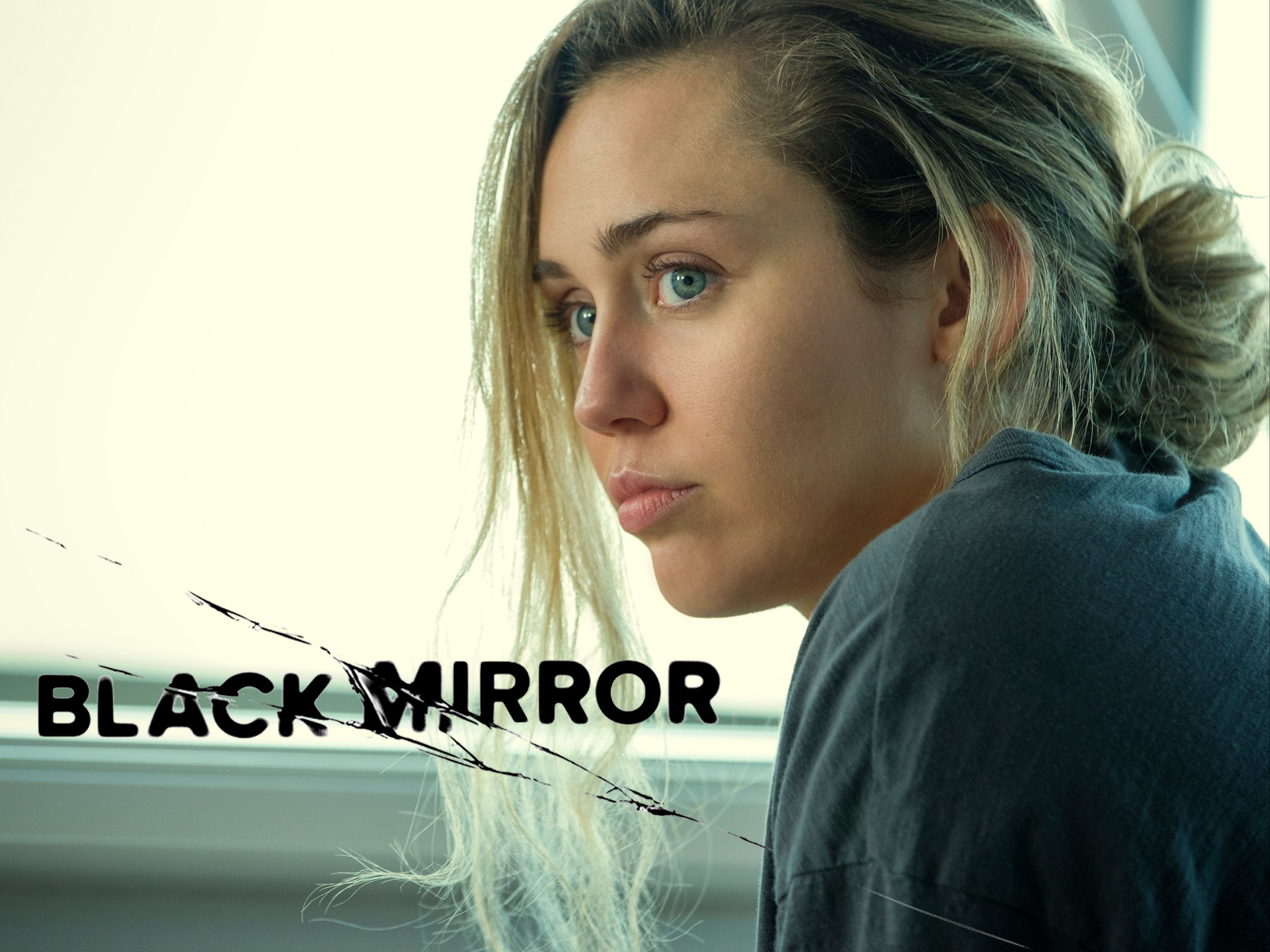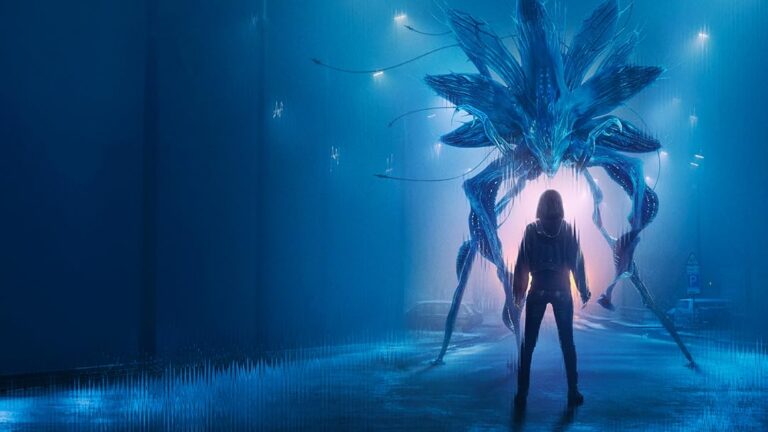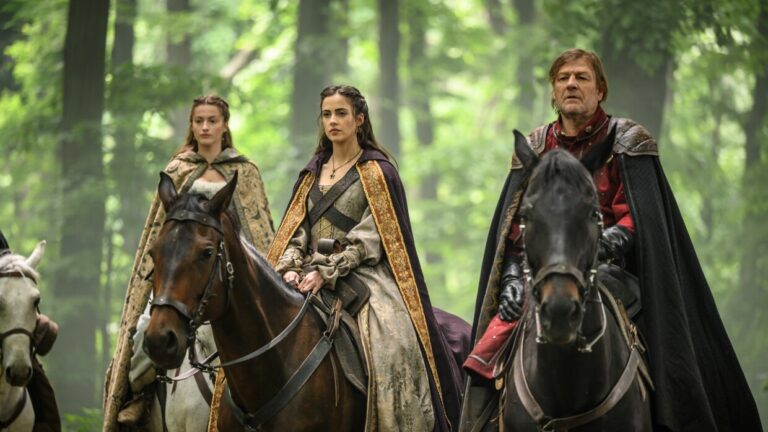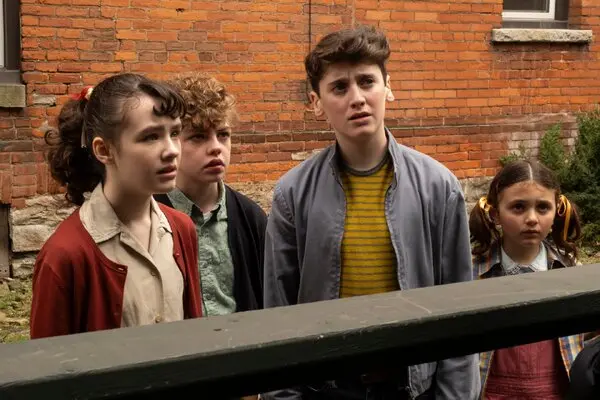Spoiler alert: This article contains full episode breakdowns for Season 7 of Black Mirror.
Seven seasons deep and Charlie Brooker’s twisted anthology still has plenty to say – sometimes with a smirk, other times with a gut punch. Season 7 rolls out six episodes, each tonally distinct, wildly ambitious, and loaded with more celebrity firepower than a BAFTA afterparty. From horror to comedy to full-blown space opera, the show’s back and not playing it safe.
So, is it still sharp? Or is the mirror finally cracking?
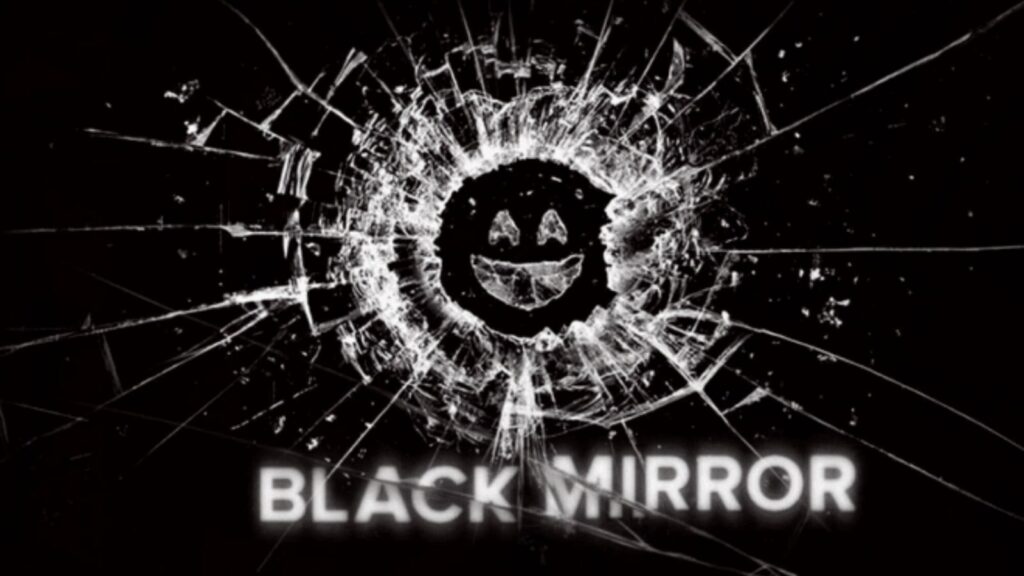
What’s Clicking and What’s Not
Season 7 wins big because:
- It ditches last season’s ghost stories and dives headfirst back into tech-fueled nightmares.
- The cast is absurdly stacked – Cristin Milioti, Peter Capaldi, Paul Giamatti, Issa Rae, Awkwafina, and more.
- It goes bold. We even get the first-ever sequel, closing the book on one of Black Mirror’s greatest hits.
But there are still hiccups:
- A couple episodes don’t quite stick the landing.
- Some themes – like virtual simulations and AI ethics – start to feel like déjà vu.
- Tonal shifts between episodes might throw off new viewers.
Yet, for all its unevenness, this season’s highs are truly high. Let’s jump into the episodes.
Episode-by-Episode Breakdown (Yes, Spoilers!)
Episode 1: “Common People”
What starts off as quirky family comedy turns into a slick satire about digital democracy gone bonkers. Rashida Jones and Chris O’Dowd play a couple who let their new AI-powered smart home crowdsource decisions from the online masses. Should they have cereal or toast? Disciplining their daughter? The internet decides.
Tracee Ellis Ross adds spice as the nosy neighbor-turned-obsessed fan, and the episode pokes brutal fun at mob mentality. Directed by Ally Pankiw, it zips along with that bright, pastel veneer fans of “Nosedive” will recognize – right before everything starts going sideways.
Why it works:
- Razor-sharp commentary on algorithm-driven life choices.
- Comedic tone masks creeping dread.
- Hilarious, dark, and maybe a little too real.
Critics loved the humor and the fast pacing. Fans had a blast spotting Streamberry Easter eggs and meme-worthy moments.
Episode 2: “Bête Noire”
And now for something way darker.
Siena Kelly plays Nisha, a young woman trying out a cutting-edge AI therapy that confronts her deepest fear – her bête noire. The machine works a little too well. Her fear morphs into a real, stalking presence. Cue glitchy hallucinations, emotional breakdowns, and some seriously eerie sound design.
Directed by Playtest veteran Toby Haynes, this one turns up the horror. Think “Metalhead” levels of dread, with just enough tech commentary to keep it rooted in Black Mirror territory.
What it nails:
- Explores weaponized personal data.
- Tight, claustrophobic direction.
- Terrifying soundscape and visual glitches.
Fans? Divided. Some called it “Black Mirror at its most horrifying.” Others missed the show’s usual satirical wit. Either way, it’s hard to look away.
Episode 3: “Hotel Reverie”
From horror to heartfelt.
This one’s set at a dreamy retreat offering high-end, AI-crafted simulations of your biggest regrets. Want to rewrite a breakup? Fix a past mistake? Here’s your chance. Issa Rae and Awkwafina play estranged friends trying to heal, while Emma Corrin brings quiet menace as the hotel manager. Harriet Walter, in a devastating subplot, tries to reconnect with a long-lost love.
It’s bittersweet, surreal, and softly stunning. Directed by Haolu Wang, the visuals lean dreamy, while the themes hit hard – nostalgia, closure, and the blurry line between healing and denial.
Why it resonates:
- Poignant exploration of memory and loss.
- Dreamlike aesthetic with real emotional payoff.
- Features some of the season’s strongest performances.
It’s this season’s emotional heart, earning praise for its depth and the nuanced acting. A few viewers said it felt too familiar (San Junipero, anyone?), but most agreed it stands tall on its own.
Episode 4: “Plaything”
Now this one’s just straight-up unhinged – in the best way.
Peter Capaldi plays Dev, a creepy game dev genius who creates a next-gen AR platform where real people become avatars for paying users. Enter Lewis Gribben’s character, a broke young man who agrees to be a “plaything.” What follows? Twists, revenge plots, and a bonkers meta reveal that basically shouts, “Yes, we know you’re watching Black Mirror.”
Oh, and Will Poulter pops in – possibly as Bandersnatch’s Colin Ritman? It’s never confirmed, but fans are frothing with theories.
Why it rules:
- Capaldi is magnetic and terrifying.
- The story eats its own tail, and it’s brilliant.
- Wild commentary on free will and digital consent.
This one had critics howling with praise. It’s ambitious, chaotic, and endlessly rewatchable. Definitely a season highlight.
Episode 5: “Eulogy”
Time to slow down.
Paul Giamatti stars as Grant, a dying journalist attending his own funeral. The twist? He’s listening to an AI-generated eulogy, written from his digital footprint. Secrets get spilled. Regrets bubble up. And he’s forced to confront the legacy he’s leaving behind.
Patsy Ferran plays Alana, the technician guiding the process. Most of the episode is just the two of them, in a softly lit room, hashing out what it means to truly be remembered.
Why it lingers:
- Giamatti’s double-role performance is heartbreaking.
- Touching meditation on mortality and curated identity.
- Quiet, haunting, and surprisingly hopeful.
Critics called it one of the most moving episodes since “Be Right Back.” Not everyone loved the slow pace, but those who did, really did.
Episode 6: “USS Callister: Into Infinity”
Here’s the sequel we didn’t know we needed but absolutely deserve.
Cristin Milioti, Jimmi Simpson, Billy Magnussen, and the whole USS Callister crew return for a high-stakes, galaxy-hopping adventure. Now free in a vast online universe, they face a new enemy: real human gamers who treat them like NPCs.
Awkwafina returns in a snarky cameo. Aaron Paul voices one of the clueless players. There are space battles, hilarious jabs at toxic online behavior, and a beautiful final act where the crew decides to create a collective for self-aware NPCs.
Why fans loved it:
- Satisfying closure to one of the show’s best stories.
- Tons of action, humor, and digital soul-searching.
- Milioti cements her place as Black Mirror royalty.
It trended worldwide. Fans called it “the best sequel the show’s ever done” (okay, the only one – but still).
Verdict: Is Black Mirror Still Good by Season 7?
Oh yes. Absolutely.
Season 7 proves Black Mirror still has teeth – and isn’t afraid to bite. It’s daring, weird, emotional, and totally unpredictable. Sure, not every episode hits the same, but that’s the point of an anthology. It swings for the fences, and most of the time, it connects.
Compared to Season 5’s slump? Night and day. Compared to the all-time highs of Seasons 3 and 4? Surprisingly close.
Charlie Brooker hasn’t lost his touch. If anything, he’s grown more playful – and occasionally more generous with hope.
Is Black Mirror Still Good by Season 7? Yep. And it’s still the smartest, strangest mirror we’ve got for our tech-obsessed times.
Final Score: 8.0


